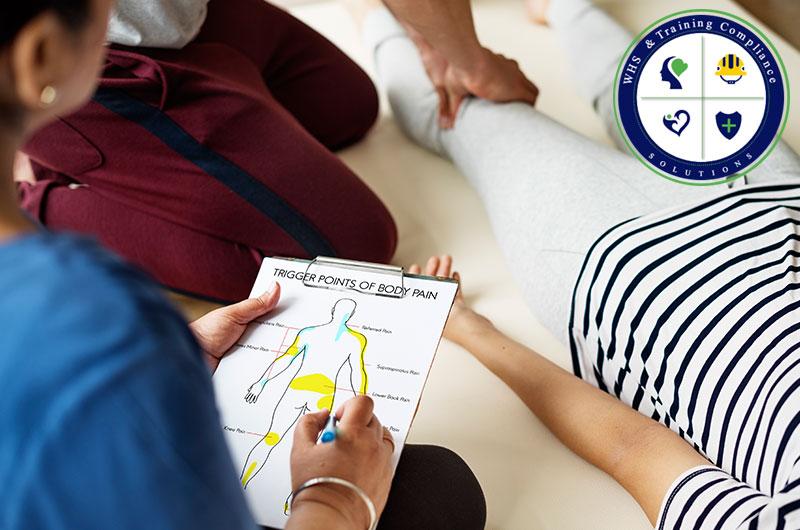Stress is a common occurrence in today’s fast-paced and demanding world. To cope with stress effectively, it is important to implement stress management strategies. One way to reduce stress is through proper time management. By prioritizing tasks and setting realistic deadlines, individuals can feel more in control of their workload and reduce the feeling of being overwhelmed. Additionally, engaging in regular physical exercise can help alleviate stress by releasing endorphins, which are natural mood boosters. Another effective strategy is practicing relaxation techniques such as deep breathing exercises or meditation. These techniques can help calm the mind and reduce anxiety. Overall, adopting these stress management strategies can greatly contribute to one’s ability to deal with and lessen stress in their daily lives..
Stress, on the other hand, is the body’s physiological and psychological response to perceived or real demands or threats. It can arise from various sources, such as work, relationships, financial concerns, or major life events. Prolonged or excessive stress can lead to a range of negative mental health outcomes, including anxiety, depression, burnout, and cognitive impairment.
Identifying and Recognizing Stress Triggers
The first step in effectively managing stress is to identify and recognize the factors that trigger it. Stress triggers can be external, such as deadlines, interpersonal conflicts, or environmental stressors, or internal, such as negative thought patterns, unrealistic expectations, or a lack of self-care. By becoming aware of these triggers, individuals can develop strategies to mitigate or avoid them, thereby reducing the impact of stress on their mental health.
Effective Stress Management Strategies
Coping with stress and maintaining mental resilience requires a multifaceted approach. Here are some effective strategies:
Mindfulness and Meditation Techniques for Stress Reduction
Mindfulness and meditation practices have been shown to be highly effective in reducing stress and promoting mental well-being. These techniques involve focusing on the present moment, cultivating a non-judgmental awareness of thoughts and emotions, and developing a sense of inner calm and acceptance. Regular practice of mindfulness and meditation can help individuals manage stress, improve emotional regulation, and increase overall mental resilience.
The Importance of Self-Care in Stress Management
Self-care is a crucial component of effective stress management. This includes engaging in activities that promote physical, emotional, and mental well-being, such as getting enough sleep, eating a balanced diet, and engaging in regular exercise. It also involves setting boundaries, practicing relaxation techniques, and making time for leisure and enjoyment.
Developing a Support System for Stress Relief
Having a strong support system, whether it’s family, friends, or a professional network, can be invaluable in managing stress. Sharing feelings and concerns with trusted individuals can help individuals feel understood and supported, and can also provide access to additional resources and coping strategies.
Time Management and Prioritization to Minimize Stress
Effective time management and prioritization can help individuals reduce stress by ensuring that they are focusing on the most important tasks and activities. This may involve creating schedules, setting realistic goals, and learning to delegate or say no to tasks that are not essential.
The Role of Exercise and Physical Activity in Stress Reduction
Regular physical activity has been shown to be a highly effective stress management tool. Exercise can help reduce stress by releasing endorphins, improving mood, and promoting better sleep. It can also help individuals develop a sense of mastery and control over their physical and mental well-being.
Seeking Professional Help and Therapy for Stress Management
In some cases, individuals may benefit from seeking professional help, such as counseling or therapy, to address more complex or persistent stress-related issues. A mental health professional can provide personalized support, guidance, and evidence-based interventions to help individuals develop effective coping strategies and improve their overall mental well-being.
Cultivating Resilience and Maintaining Mental Well-being
Ultimately, the key to effectively coping with stress and maintaining mental resilience is to adopt a holistic and proactive approach. This involves developing a range of stress management strategies, cultivating self-awareness and self-care practices, and building a strong support system. By taking steps to address stress and prioritize mental well-being, individuals can enhance their ability to navigate life’s challenges and maintain a healthy, balanced, and fulfilling lifestyle.
If you or someone you know is struggling with stress or mental health challenges, don’t hesitate to reach out for professional support. There are a variety of resources available, including counseling services, support hotlines, and online mental health platforms. Take the first step towards better mental health and well-being today.
Conclusion: Embracing a happier, healthier lifestyle through stress management
In conclusion, stress is an unavoidable part of life, but it is how we manage and cope with stress that determines its impact on our well-being. By understanding the foundations of mental health, recognizing the impact of stress on our health, and implementing stress management techniques into our everyday lives, we can unlock the power of stress management and embrace a happier, healthier lifestyle. From incorporating exercise and physical activity to nourishing our bodies with healthy nutrition, practicing mindfulness and meditation, prioritizing sleep, and seeking professional help when needed, each step we take towards effective stress management brings us closer to a life of balance, resilience, and well-being. Start your stress management journey today and discover the transformative power it can have on your life.
It is essential to have effective strategies for dealing with stress to maintain mental and physical well-being. One strategy is to practice relaxation techniques such as deep breathing exercises, meditation, or yoga. These techniques help in reducing tension and promoting a sense of calmness. Another strategy is to prioritize and manage time effectively. By setting realistic goals and breaking tasks into smaller, manageable parts, one can avoid feeling overwhelmed. Additionally, engaging in regular physical exercise can help in reducing stress levels by releasing endorphins, which are natural mood boosters. It is also crucial to have a support system in place, whether it is through family, friends, or professional counselors. Sharing concerns and seeking advice from trusted individuals can provide emotional support and different perspectives on dealing with stress. In conclusion, adopting these strategies for dealing with stress can greatly contribute to maintaining a healthy and balanced life.
Take the first step towards stress management today and incorporate one stress-relief technique into your daily routine. Whether it’s deep breathing exercises, a mindful walk, or seeking support from a loved one, small steps can make a big difference in your overall well-being.
Strategies for dealing with stress
- Talk with your friends, family or co-workers
- Plan your day, and take one thing at a time. Prioritise urgent task and when that’s done, move on to the next.
- Learn to say, “No!” at home or at work
- You are not a super hero. Don’t expect perfection from yourself.
- Visualise to see how you can manage a stressful circumstance at work, at school or home more effectively. Be positive.
- Relax and have five to 10 minutes of reflection time to bring some relief. If you’re having a stressful day at work go for a quick walk or have a 10-minute time out, to clear your mind.
- Exercise daily to help helps your body and mind relax.
- Do something that you enjoy.
- Get adequate rest, eat right, exercise, limit your use of caffeine and alcohol.
- And remember, you can always talk with your general practitioner, when you are unable to cope with your stress.
Contact us for onsite, online or blended MHFA Training.












